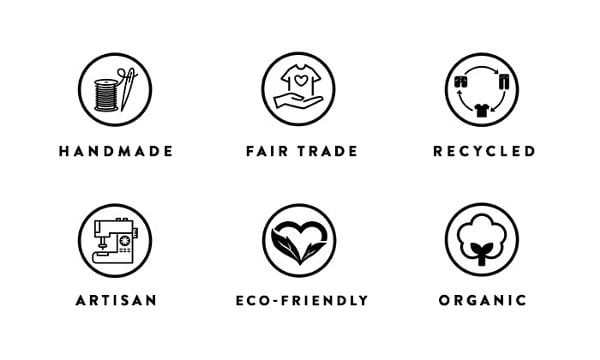So what is slow fashion? Well, it’s literally the opposite of fast fashion. Fast fashion has emerged in the 90’s as high street brands started stocking collections on six-eight week cycles, rather than the traditional 3-4 month cycle for the seasons. These brands promised not only new stock every month, but items for lower and lower prices. Suddenly fashion trends were straight off the catwalk and into the hands of consumers for a quarter of the price. Most of us have bought into it, as it seems so great – latest fashions at affordable prices, or should we say downright cheap. However, a huge wake-up call happened in April 2013 when a building housing garment factory workers collapsed in Bangladesh, killing 1,134 people and injuring more than 2,500. The true cost of fast fashion was revealed. Clothes made by fast fashion brands are only able to be made quickly and cheaply at the great expense of the workers making them.
The issue of fast fashion is detailed in the excellent documentary “The True Cost” and watching this documentary was a huge turning point for us. Suddenly, the cheap yoga leggings or t-shirts didn’t seem like such a great bargain if they have been made by people working in unsafe environments and paid poorly. How else can jeans be made for $15? The fashion companies are some of the most profitable companies in the world. It only stands to reasons that somewhere along the supply chain someone is losing out.
It’s upsetting that it took the loss of so many lives for the West to start waking up to the systemic inequalities in the fashion world. But fortunately from this devastation, a counter-movement has emerged and it’s known as slow fashion. The premise is that no one should have to suffer in order to make the products we use. The supporting message is that it’s time to take a break from the rampant consumerism, that fast fashion was fuelling and perpetuating.
The slow fashion movement empowers people to become “conscious consumers” deliberately supporting brands that have fair trade, environmental and sustainable business practices. The movement is gaining traction and through our interactions with customers, we feel there is definitely a growing interest in making ethical purchases. It’s just the beginning and the future looks bright. It’s what stocks the fire of our drive to keep promoting Oni, remembering as Margaret Mead said: “Never doubt that a small group of thoughtful, committed citizens can change the world; indeed, it’s the only thing that ever has.”

Image via newclassics.ca
